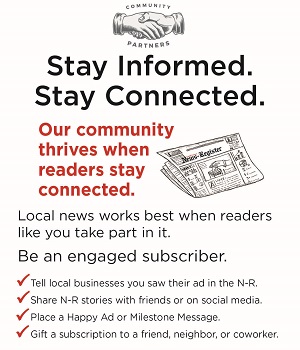© 1999- News-Register Publishing | © The Associated Press
The News-Register and NewsRegister.com are owned and operated by News-Register Publishing Co., P.O. Box 727, McMinnville, OR 97128.
All rights reserved. This material may not be published, broadcast, rewritten or redistributed.
The News-Register and NewsRegister.com are owned and operated by News-Register Publishing Co., P.O. Box 727, McMinnville, OR 97128.
All rights reserved. This material may not be published, broadcast, rewritten or redistributed.











